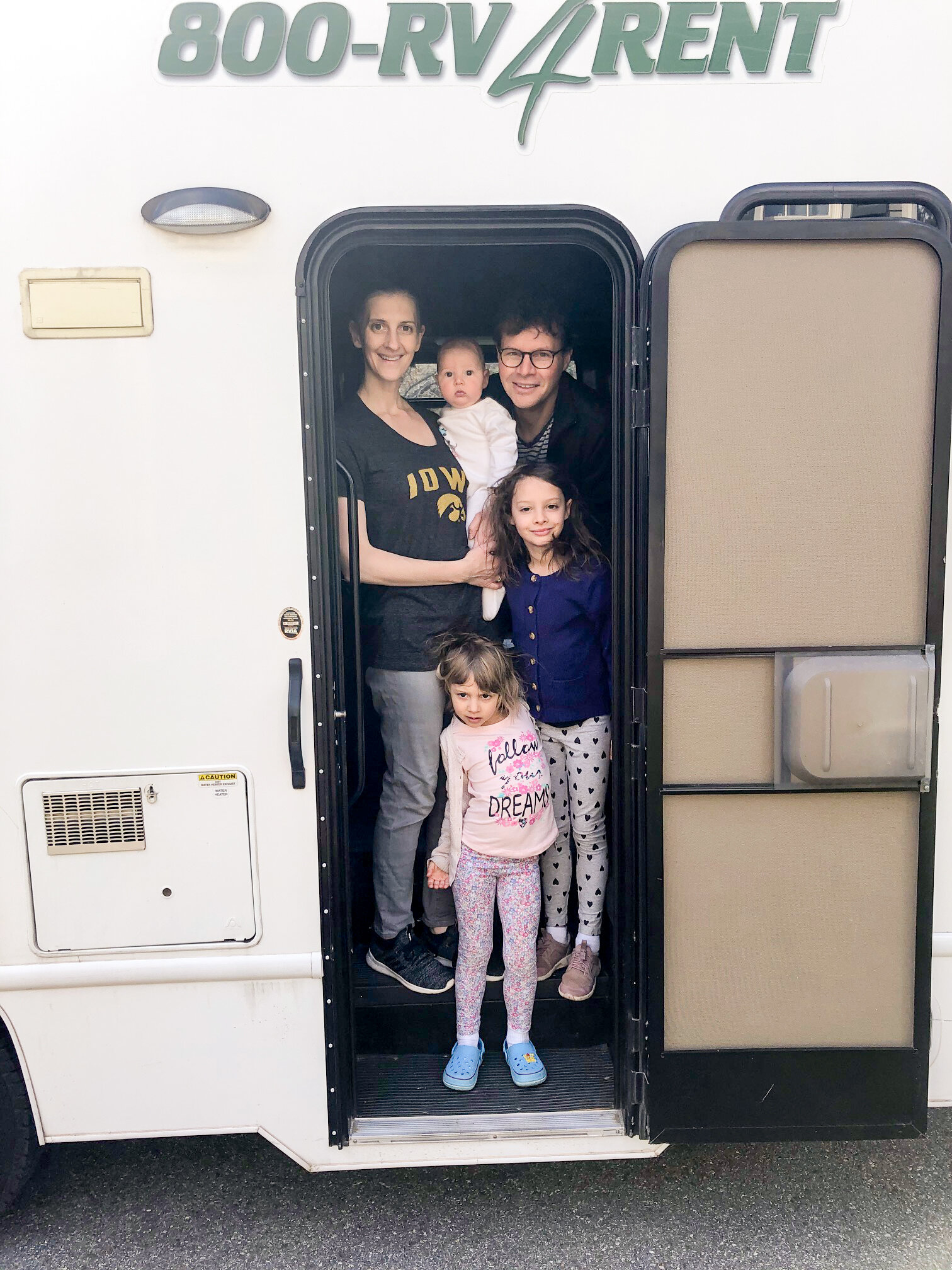Gardner Becomes Leaders of AMPATH Consortium
The personal characteristics most often cited for a successful global health career are the ability to be flexible and adapt easily to change.
Typically, this refers to a medical context where supplies or facilities may be less than ideal.
The Gardners arrived at their new home in Indiana via a 3-day road trip.
But when Adrian Gardner took the helm of the AMPATH Consortium earlier this year, he had no idea that he and his family were about to have a chance to show off just how adaptable they could be. Of course, he knew the role would involve a move from Eldoret to Indiana. He didn’t expect that the move around the world would happen on 48 hours’ notice in the middle of a pandemic. And he definitely didn’t expect that he, his wife Jessica, two young daughters and baby son would arrive in Indiana in an RV after a two-week quarantine and three-day drive.
“This is not exactly the transition I envisioned,” said Adrian.
“Not in our wildest imaginations,” added Jess.
Of course, after several decades of AMPATH involvement, nothing surprises Gardner. He first travelled to Kenya in 2001 as a Brown University medical student. Dr. Joe Mamlin and his Kenyan colleagues were in the midst of responding to the HIV epidemic and building the foundation for AMPATH’s successful care and control model. Gardner was hooked on the challenge of battling infectious diseases such as HIV and tuberculosis and on Kenya. After completing a TB clinic in Rhode Island with Dr. Jane Carter, he returned to Kenya and served as the AMPATH team leader in 2006-07 and as executive field director beginning in 2012.
While the situation on the ground for the Gardners’ arrival in Indiana was not exactly what they expected, the situation in Kenya was changing by the minute as well. Gardner says AMPATH’s mission to “lead with care” continues to guide AMPATH’s work during this tumultuous time. “We look at the needs of our Kenyan colleagues and the people we are trying to serve and create solutions that are responsive to community needs,” said Gardner.
Right now those urgent needs include humanitarian support for families that have lost their livelihood due to coronavirus curfews and stay-at-home mandates; ensuring adequate testing and PPE supplies for health workers and community health volunteers; and developing digital learning opportunities so Kenyan residents and fellows can continue their studies.
“What initially appealed to me about AMPATH was the opportunity to personally interact with some of the world’s most vulnerable citizens and to be able to impact individual lives with relatively limited resources,” said Gardner. “When the viral threat from COVID-19 has passed, the economic and health worries will remain for many Kenyans. AMPATH’s ability to adapt to meet these needs will be more crucial than ever,” he continued.

